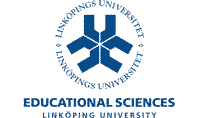|
|
| |
| SYLLABUS |
| Theories and Practice of Outdoor Education and Learning,
15 ECTS Credits |
| |
COURSE CATEGORY Single Subject Course
MAIN FIELD OF STUDY Pedagogik - PEA
SUBJECT AREA
|
|
COURSE CODE |
|
917A01 |
|
| AIM OF THE COURSE |
• to give an account of both practical and theoretical knowledge about the effect that a natural and outdoor environment has on health, concentration, physical and motor development
• to describe the importance of the natural environment for learning
• to demonstrate knowledge of the history of outdoor education and its philosophical and pedagogical background. |
| CONTENTS |
The course has an environmental profile and is laborative, treating learning for sustainable development. The content proceeds from current research on man's relationship with the physical environment and the importance of the natural outdoor environment for health and mobility. Through laborative, experimental and field-based forms of work the pedagogical effects of physical activity are studied. Knowledge in action and reflection in action are practiced in natural and outdoor environments from theoretical perspectives drawn from both physical geography and biology. Further, the importance of evolutionary and cultural history perspectives on learning are taken up.
Central concepts that are emphasised are: pragmatism, constructivism, situated learning, reform and learning by doing. The course also elucidates the connection between cognitive research and neuropedagogy. Similarly, a survey is provided of earlier traditions in the field, of theoretical and practical educational ideals, the difference between theory and practice in the modern school as well as of educational philosophy traditions concerning questions of the nature of reality.
|
| TEACHING |
| Instruction takes place mainly in outdoor environments with the natural landscape as point of departure. Forms of work are varied and consist of experimental field studies and field analyses, excursions, lectures, seminars, study visits, literature study, individual work and self-instruction. |
| EXAMINATION |
Testing is done by written and oral individual reflective tasks connected to the activities of the course meetings. Literature is examined in literary seminars.
Students failing an exam covering either the entire course or part of the course two times are entitled to have a new examiner appointed for the reexamination.
Students who have passed an examination may not retake it in order to improve their grades. |
| ADMISSION REQUIREMENTS |
Degree in teacher training of at least three years, e.g. a bachelor’s degree or the equivalent. Documented knowledge of English equivalent to "Engelska B"; i.e. English as native language or an internationally recognized test, e.g. TOEFL (minimum scores: Paperbased 575 + TWE-score 4.5, internetbased 90 TWE-score 20), IELTS, academic (minimum score: Overall band 6.5 and no band under 5.5), or equivalent. |
| GRADING |
|
| CERTIFICATE |
| Course certificate is issued by the Faculty Board on request. The Department provides a special form which should be submitted to the Student Affairs Division. |
| COURSE LITERATURE |
|
The course literature is decided upon by the department
in question. |
| OTHER INFORMATION |
Planning and implementation of a course must take its starting point in the wording of the syllabus. The course evaluation included in each course must therefore take up the question how well the course agrees with the syllabus.
The course is carried out in such a way that both men´s and women´s experience and knowledge is made visible and developed. |
| |
Theories and Practice of Outdoor Education and Learning
Theories and Practice of Outdoor Education and Learning |
| |
Department responsible
for
the course or
equivalent:
IKK - Department of Culture and Communication |
| |
|
|
|
|
|
| Registrar No: 242/07-41 |
|
Course Code: 917A01 |
|
|
|
| |
|
Exam codes: see Local Computer System |
|
|
|
| Subject/Subject Area : Pedagogik - PEA |
|
|
|
|
|
| |
|
|
|
|
|
| Level |
|
Education level |
|
|
Subject Area Code |
|
Field of Education |
|
| A1X |
|
Advanced level |
|
|
PE1 |
|
NA |
|
|
The syllabus was approved by the Board of Educational Sciences 2008-02-05
|
|
|
| |
